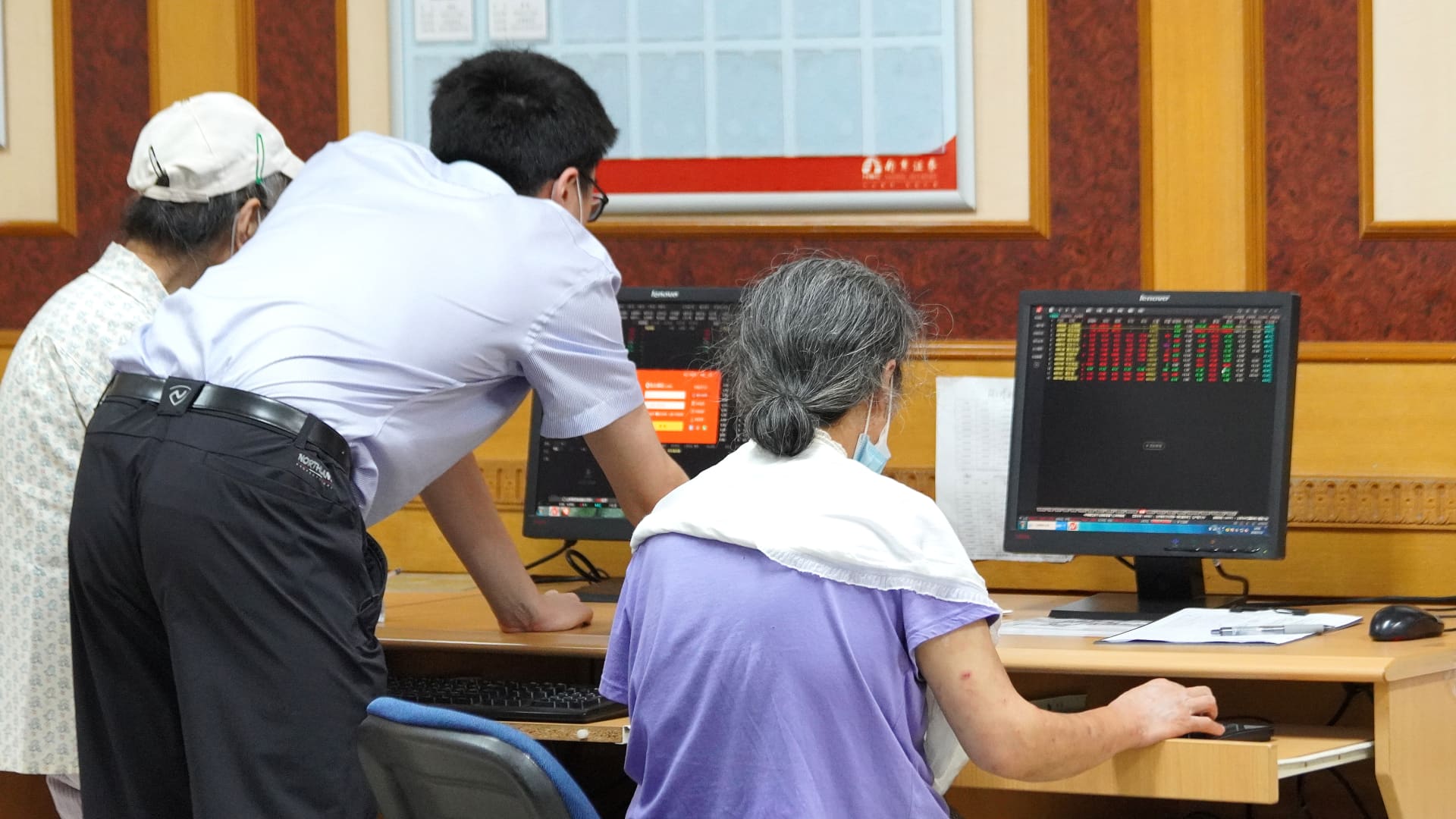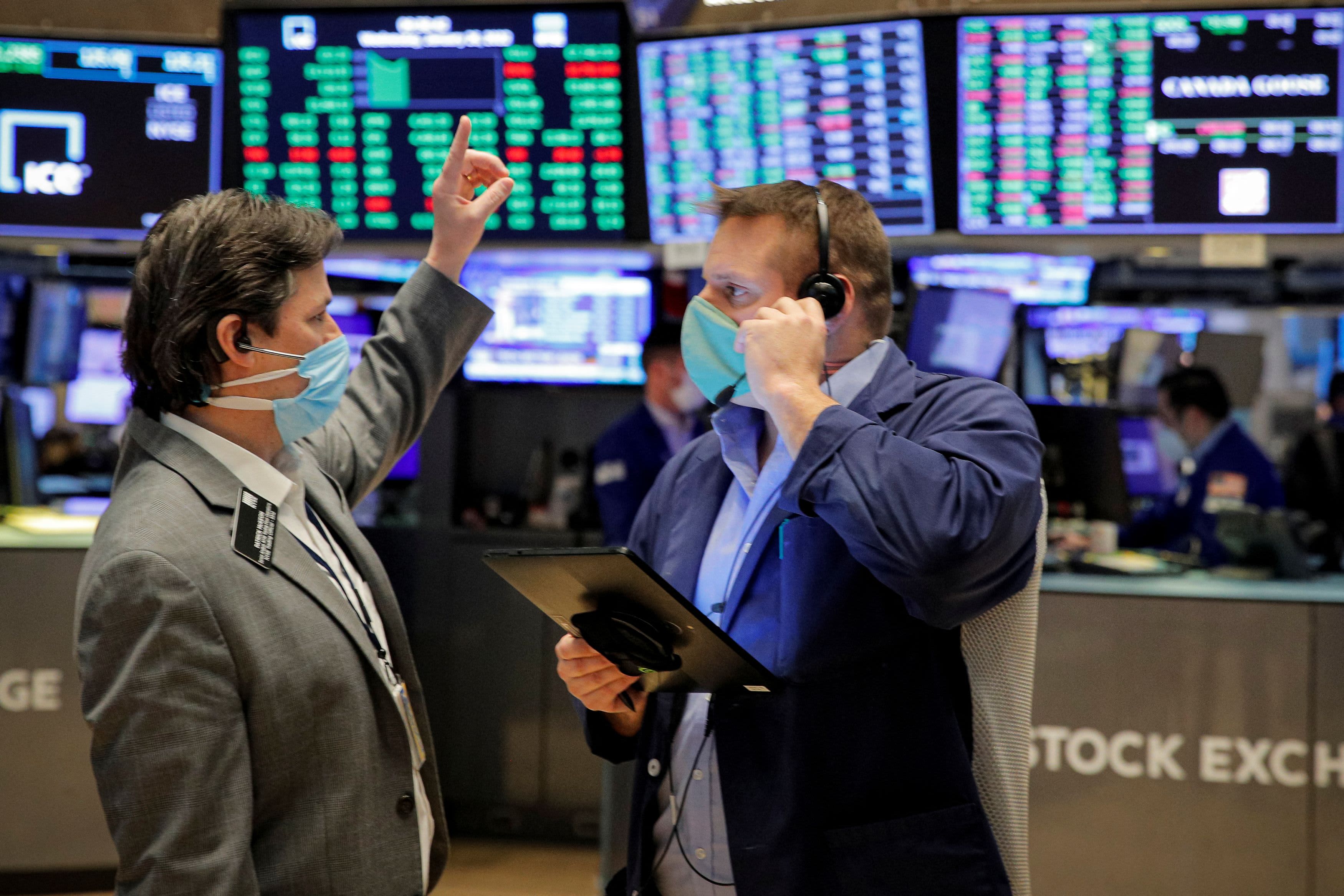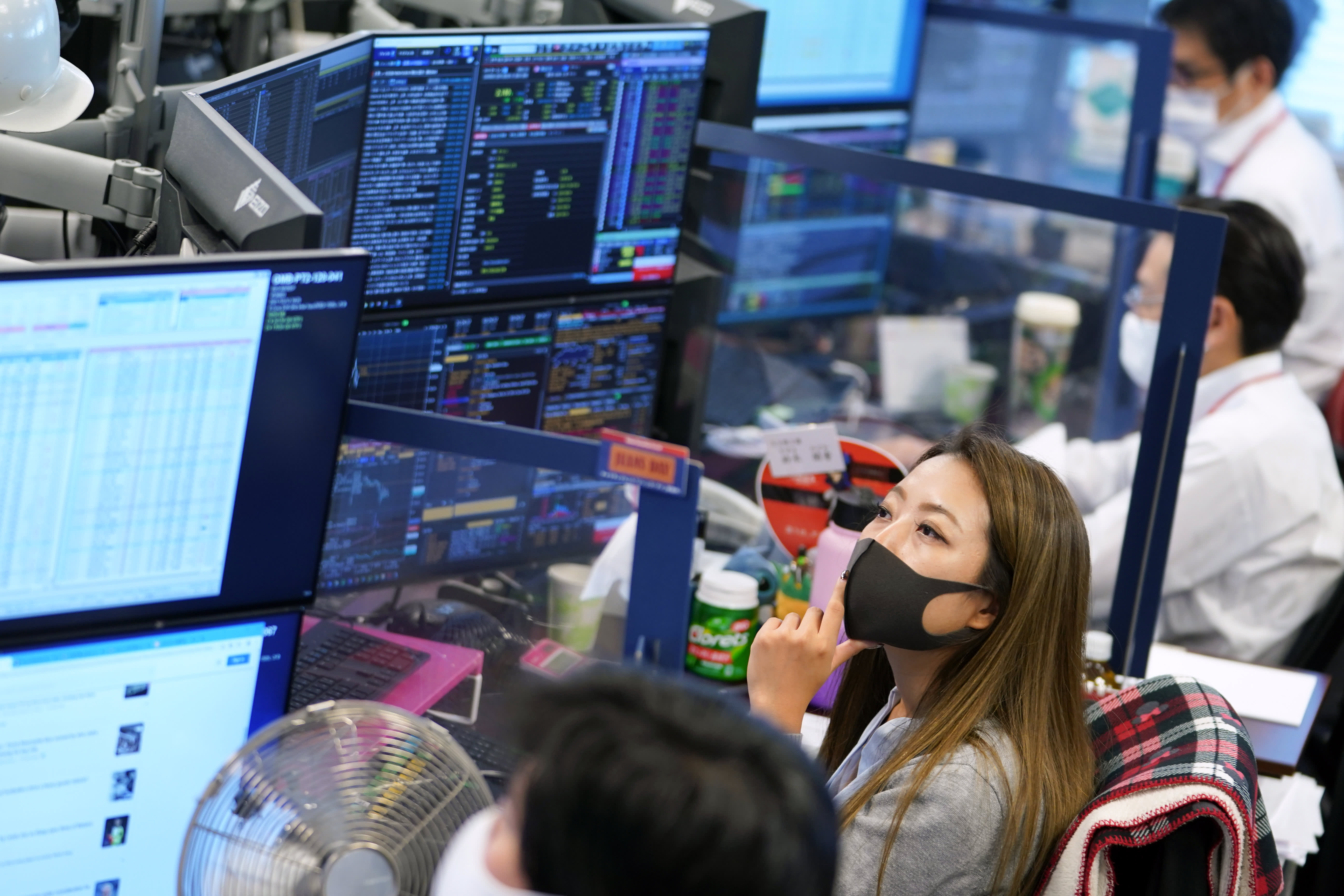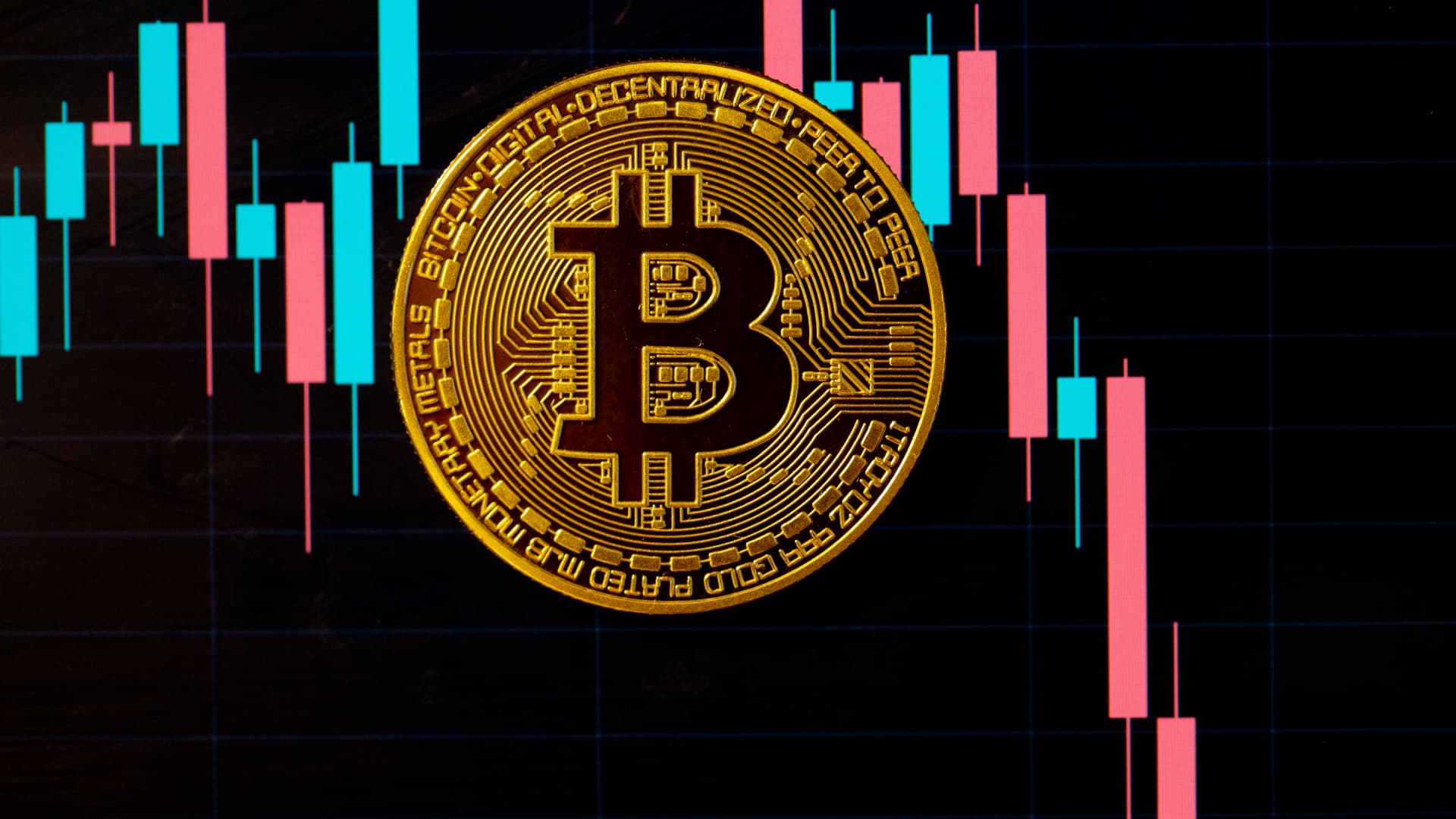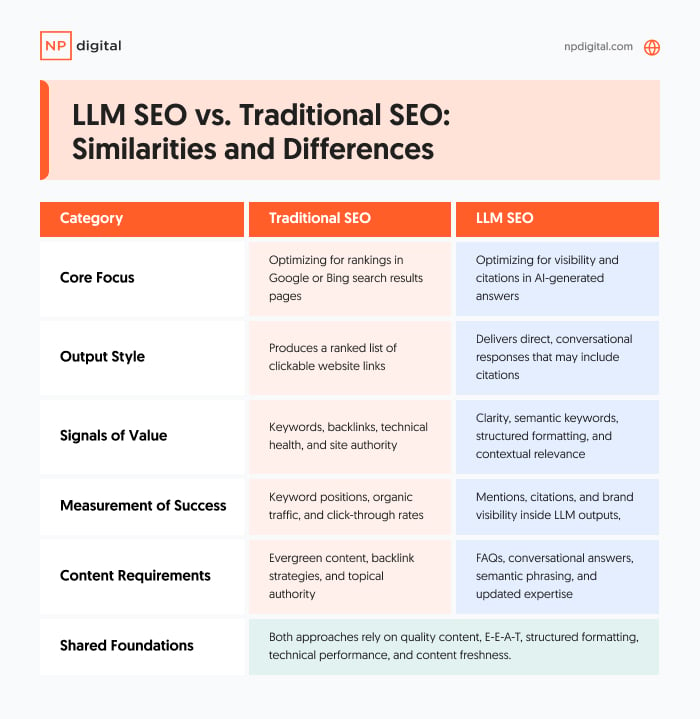Samsung profit plunges in first drop since 2019 as chipmakers feel bite
Samsung forecast on Friday its operating profit plunged 32% in the third quarter of the year as weaker memory pricing and demand hit the technology giant.
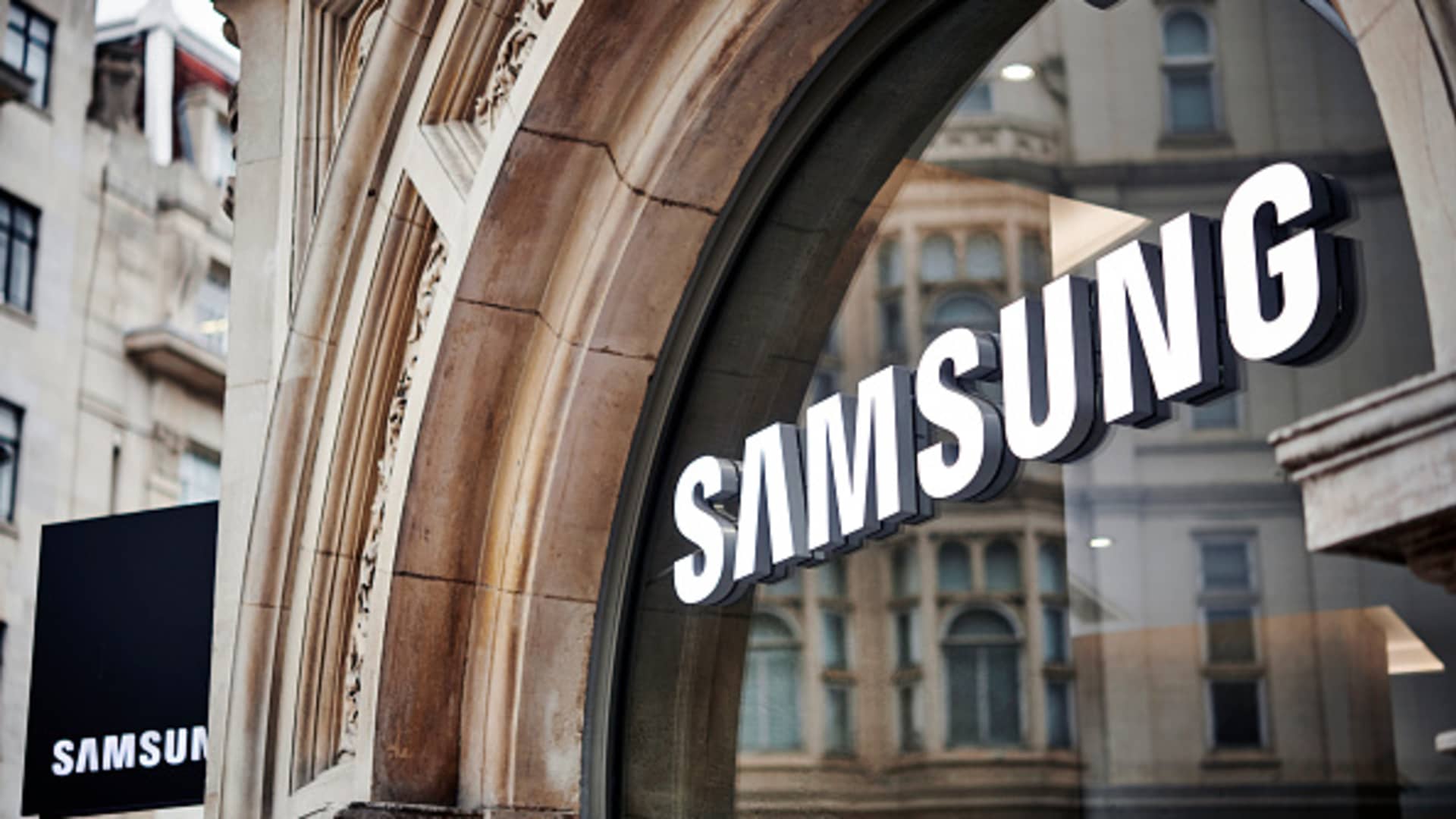
Samsung is facing headwinds from a global slump in deamand and prices for its memory chips, sales of which make up a large part of the South Korean technology giant's business.
Olly Curtis | Future | Getty Images
Samsung said Friday its operating profit likely plunged 32% in the third quarter of the year as weaker memory pricing and demand hit the technology giant.
The South Korean firm said it expects operating profit to be between 10.7 trillion ($7.57 billion) and 10.9 trillion South Korean won. It is the first decline in operating profit since 2019.
Samsung reported a revenue rise of between 75 trillion and 77 trillion Korean won, a 1.3% to 4% year-on-year rise.
Samsung's chip business, which includes selling chips for laptops, servers and storage, as well as manufacturing semiconductors, accounts for 70% of its profits.
The company sells NAND and DRAM chips which are used in devices such as laptops and smartphones, through to data centers. It also has a semiconductor manufacturing business. Samsung did not release any commentary alongside its third-quarter forecast but analysts said a weakening of memory chip prices and demand was likely behind the profit fall.
Daiwa Capital Markets said in a note on Friday that DRAM and NAND shipments declined by 15% and 10% quarter-on-quarter, while prices fell 19% and 20% respectively quarter-on-quarter, "which led to a sharp decline in earnings."
The predicted profit fall adds further concerns about the chip sector which is facing softer demand amid a weaker global macroeconomic environment.
Advanced Micro Devices on Thursday reported preliminary revenue estimates for the third quarter that were well below its initial guidance. The U.S. firm cited "weaker than expected PC market and significant inventory correction actions across the PC supply chain."
Micron, a rival to Samsung, warned last month that "consumer demand and inventory-related headwinds" were impacting memory makers.
Samsung's profit fall forecast sent shockwaves through other chip stocks. In Europe, companies such as Dutch equipment maker ASML and Apple supplier STMicro were lower in morning trade.
TSMC, the world's largest contract chip manufacturer, was down in Taiwan trade. However, after the market close in Taiwan, the company reported a 42.6% year-on-year rise in revenue, bucking some of the bearishness among semiconductor firms. TSMC is perhaps the world's most important chipmaker, manufacturing components for the world's largest electronics makers including Apple.
Many companies, including Micron, are cutting their capital expenditure and reducing inventory, which could help companies like Samsung recover and signal the bottom of the current semiconductor downturn.
"That is kind of the signal of bottoming," SK Kim, analyst at Daiwa Securities Capital Markets, told CNBC's "Street Signs Asia" on Friday.
Kim said he expects memory prices will rebound in the first half of the next year, adding that Samsung's share price "is also bottoming out soon."
Samsung shares are down more than 28% year-to-date.
Despite the recent slump, Samsung has laid out a roadmap for its semiconductor business, in which it aims to start manufacturing the most advanced chips in five years time.

 Konoly
Konoly 







